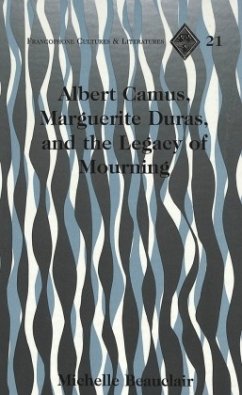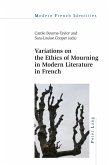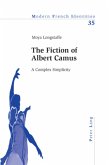This study examines the complexity of mourning in the works of two of the most widely read, yet rarely compared, contemporary authors in France, Albert Camus, born and raised in Algeria, and Marguerite Duras, originally from the former French Indochina. The book studies the figurative and thematic representations of mourning in these authors' works to show how their depictions of grieving extend beyond classic psychoanalytic theories of bereavement to portray a mourning that is unmitigated and interminable. The text completes this examination by exploring the distinction between individual and collective mourning attempts and by underscoring the pervasive tone of melancholy in the post-World War II writings of both authors.
Bitte wählen Sie Ihr Anliegen aus.
Rechnungen
Retourenschein anfordern
Bestellstatus
Storno








